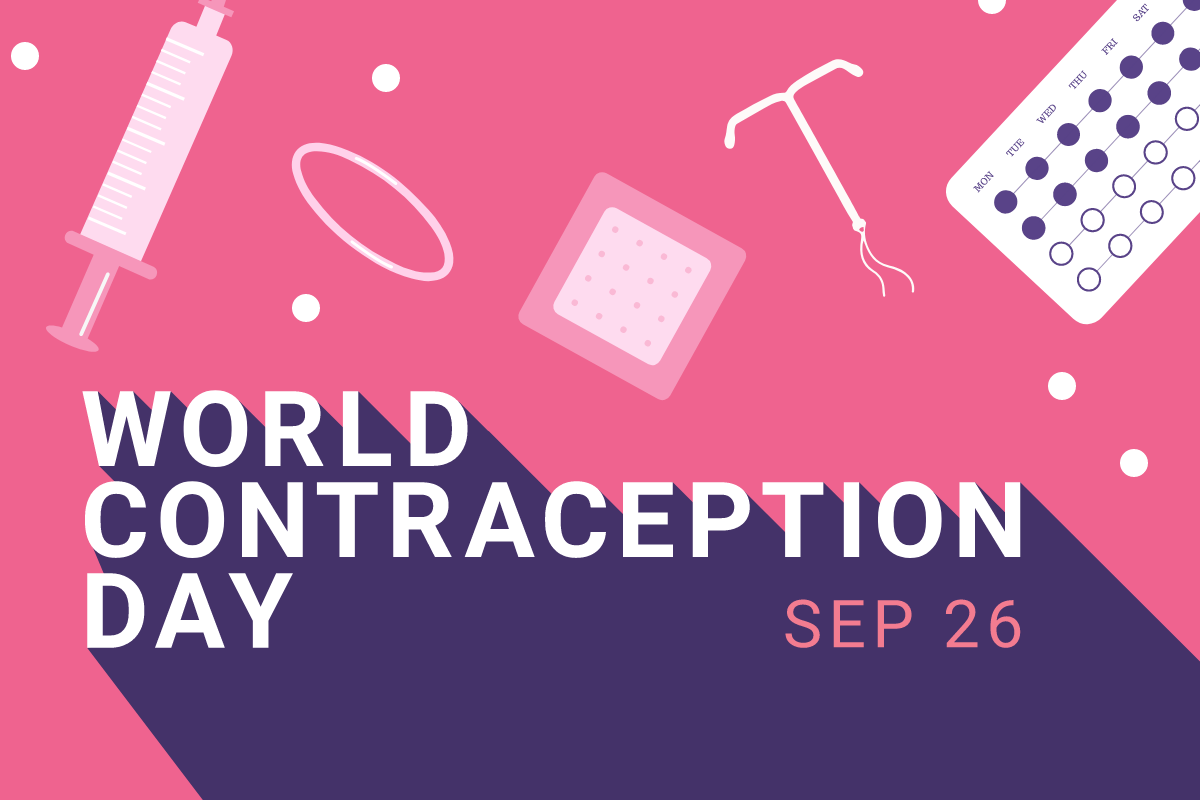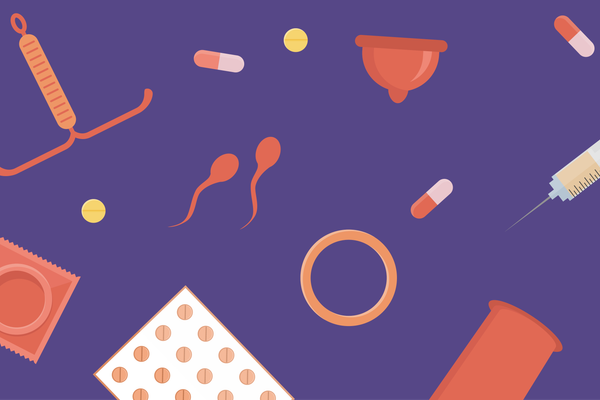The word “miserable” comes to mind for Shannon Luders-Manuel when she remembers the days before she was on hormonal birth control. The 45-year-old writer, editor and sensitivity reader has had premenstrual dysphoric disorder (PMDD) since she was in high school. A week before her period every month, she would experience paranoia and brain fog. Her periods were heavy, long, and painful. She describes her breasts being so sore that they felt like bowling balls.
“I would have to take at least a day off from work every month and would just be in debilitating pain,” she said. “The paranoia also really affected my relationships.”
She was prescribed hormonal birth control, and while it took some trial and error to find the one that best addressed her symptoms, she said it completely changed her life.
“It really helped me mentally, it's amazing,” she said. “It allowed me to function in society.”
For many women like Luders-Manuel, hormonal birth control is key to living a normal life.
“Contraceptives can alleviate symptoms of PMDD or perimenopause, which can be so debilitating that they negatively affect a patient’s home life and work life,” said JoAnn Pinkerton, M.D., professor of OB-GYN at the University of Virginia and member of HealthyWomen’s Women’s Health Advisory Council.
How does hormonal birth control work?
Hormonal birth control contains a combination of the female hormones estrogen and progestin (synthetic progesterone) or can be progestin only. Hormonal birth control methods prevent pregnancy by stopping ovulation, increasing the thickness of mucus in the cervix as a barrier to sperm, and/or stopping fertilized eggs from implanting into the uterus. There are a variety of formulations and forms of hormonal birth control, including pills, patches, hormonal intrauterine devices (IUDs), shots, vaginal rings and coils. Your reason for taking hormonal birth control, lifestyle, health issues and any side effects you experience may determine which method of birth control your healthcare provider (HCP) recommends for you.
Why do people use hormonal birth control?
Preventing pregnancy is the most common usage for hormonal birth control, but because these contraceptives affect female hormone levels, they can also address a variety of reproductive health concerns, such as PMDD, extreme pelvic pain and heavy periods.
“Some of the most common reasons women use contraceptives are to regulate their cycles, to alleviate menstrual cramps and to minimize menstrual flow,” explained Tomer Singer, M.D., reproductive endocrinologist and medical director at New York-based Shady Grove Fertility. “Patients with diagnoses such as polycystic ovary syndrome (PCOS), endometriosis, fibroids or ovarian cysts are frequently prescribed birth control pills to control and treat these conditions.”
This represents a significant number of women: About 10% of women have endometriosis, 10% have PCOS, and 20% have dysmenorrhea (extreme period pain).
Hormonal birth control can also help women experiencing acne or excessive hair growth (called hirsutism). In addition, contraceptives can alleviate many extreme symptoms that perimenopausal women experience, drastically improving their quality of life, mood and ability to function.
“What’s amazing about these contraceptives is that they really give women back their cycles and help women feel more like themselves, particularly perimenopausal women,” said Pinkerton. “These are women who are entering into that transition zone leading to menopause. Their ovarian hormones are fluctuating; they may be getting heavy bleeding, hot flashes, night sweats, crying at the drop of a hat and worsening PMS.”
As an added benefit, hormonal birth control can decrease the risk of certain gynecological cancers, including uterine, ovarian and colorectal cancer.What are the side effects of hormonal birth control?
While there are numerous benefits to hormonal birth control, there are some side effects, including breast tenderness, headaches, nausea and weight gain, and acne in some women, Pinkerton explained, also noting that some women experience more serious problems.
“Modern contraceptives have less estrogen and progestin than they did previously, making them safer, but not without risks such as blood clots, stroke or pulmonary embolism,” she said. “Additionally, higher-dose pills appear to increase the risk of breast cancer with long-term use.”
Some women are at higher risk for these more serious side effects, including current smokers and women with diabetes, untreated high blood pressure and gallstones.
Certain women, she added, should absolutely avoid hormonal birth control. Women over the age of 35 who smoke and have a BMI of 30 or more are a high risk group.
So are women with prior blood clots; stroke; heart disease; migraines with aura; diabetes with vascular disease; liver tumors or liver diseases, including hepatitis or cirrhosis; and a current or past history of estrogen-sensitive cancers such as breast cancer.
Women who experience side effects should speak with their HCP, who may recommend a different option.
Is access to hormonal birth control at risk?
Despite the myriad benefits and uses for contraceptives, access remains under threat. There’s a very real fear that women’s rights to contraception will be rolled back after Supreme Court Justice Clarence Thomas recently wrote that previous rulings on contraception should be reconsidered.
“In the wake of Roe v. Wade being overturned, it makes me nervous about the future of access to birth control,” Luders-Manuel said. “It makes me nervous for people with PMDD, because for so many of us, it is such an important medication.”
Twelve states allow some HCPs to restrict contraception-related services. Even now, many women, especially low-income women, live in areas called contraceptive deserts.
“One barrier to access is that women can’t get to a provider, either because there are no providers near them at all, or there’s no provider near them who can offer the kind of birth control that they want,” said Mara Gandal-Powers, director of birth control access at the National Women’s Law Center. “We also see out-of-pocket costs [being] a huge barrier for people, whether that’s because they are uninsured, they can’t use their insurance or their health plan is not complying with the Affordable Care Act.”
Under the Act, health insurance providers must provide coverage, without any cost-sharing requirements, for at least 18 FDA-approved contraceptive methods. Health insurance providers can’t require a patient to use a contraceptive method that differs from what their HCP recommends, although they can require a patient to use a generic version of the same method. While the ACA only references contraception as a form of preventive care, federal guidance suggests that insurance companies must defer to what HCPs deem medically necessary.
Unfortunately, not all health insurance providers comply.
If you’ve been denied access to contraception, tell us your story
“We have a hotline at coverher.org, where people can come to us if they still have these out-of-pocket costs,” Gandall-Powers said. “We continue to hear that plans are not covering all different kinds of contraceptives the way they should; that’s particularly true around some of the newer methods that have been approved by the FDA in the last few years.”
If you are denied coverage, you do still have rights, Gandall-Powers said. One option is to reach out to the National Women’s Law Center.
“The ball isn’t entirely in your health insurance company’s court,” she explained. “You can file an appeal. And if that appeal is successful, you can get reimbursed. The Biden administration has been really clear that they are looking to hear about places and plans that are not complying so they can hold them accountable.”
Resources
National Women’s Law Center — Cover Her Project
Employee Benefits — Social Security Administration — File a claim if you’ve been denied access to contraception- Hormonal vs. Non-Hormonal Contraception: What's the Difference ... ›
- Birth Control Side Effects That Aren't Normal - HealthyWomen ›
- Clinically Speaking: Questions to Ask Your HCP About Birth Control ... ›
- Contraception Is Free to Women, Except When It's Not | Kaiser ... ›
- Facts About Hormonal Birth Control Pills - HealthyWomen ›
- My Insurance Company Refused to Cover My Birth Control - HealthyWomen ›







